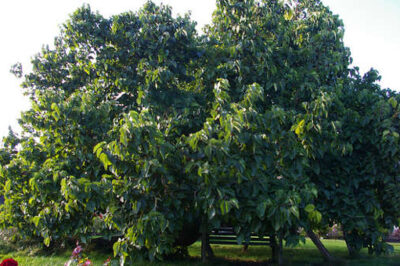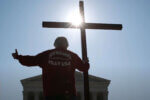Jesus is the master at communicating with word pictures. Jesus always used parables and brilliant word pictures to get his point across and to minister revelation to the listener.
In Luke chapter 17, Jesus is ministering on offenses and forgiveness when He says, “If he sins against you seven times in a day, and seven times in a day turns to you, saying, ‘I repent,’ you must forgive him” (Luke 17:4, MEV). The apostles response to that was, “Lord, Increase our faith” and Jesus says something amazing in Luke 17:6 when He says, “If you had faith as a grain of mustard seed, you could say to this mulberry tree, ‘Be uprooted and be planted in the sea,’ and it would obey you” (MEV).
Notice, in the middle of a teaching on offenses and forgiveness, Jesus brings up a mulberry [Sycamine] tree. The mulberry tree might not mean anything to us, but that tree was known in that region for being the casket tree.
The mulberry tree in Israel was grown in abundance and used to build coffins. The mulberry tree was a very tough, durable wood that resisted decay, much like today’s treated lumber so it was used to build caskets. The moment, Jesus brought up the mulberry tree everyone’s mind went to death, funerals and the use of that tree.
The revelation and the word picture that Jesus was portraying is that the sin of unforgiveness is a sin that brings forth death in our lives. James 1:15 says, “When sin is finished, it brings forth death” (MEV). The mulberry tree was a reminder to those listening to Jesus that the sin of unforgiveness is a serious sin of the heart that can actually cause us physical harm. Even today’s medical professionals now believe that holding grudges against people can cause stress and that stress can lead to health complications.
During my freshman year of college, one of my friends lost their father to colon cancer. I really thought a lot of that man; he was a successful business owner, he was a good Christian family man and he was a worship leader for many years. I just couldn’t understand why he died and such an early age and I was spiritually perplexed about that for many years.
One day as I was sitting in Bible College, as the teacher taught on unforgiveness, I thought of that man. He had been a worship leader at a growing and successful church and after service on a Sunday morning, he was dismissed from his duties in an abrupt way. Yes, the church was wrong in how they handled his dismissal, but he became extremely bitter and never seemed to let it go. I remember him speaking of it to me and being upset about it for many years. As I sat in Bible College, I believe the Holy Spirit brought him to my mind and I finally had my answer to his early demise.
Jesus used the mulberry tree for a reason—unforgiveness doesn’t hurt the one we are offended with; it only hurts us. If you’ve been in the church for any length of time and someone has offended you or hurt you in any way, you must to let it go for your own spiritual health. Acts 24:16 says, “In this do I always strive to have a clear conscience toward God and toward men” (MEV).
We must exercise our hearts on a daily basis to keep our hearts clear of offenses and unforgiveness.
Steve Trexler is a minister and a writer for Kenneth Hagin Ministries in Broken Arrow, Oklahoma. Steve is the author of Gathering God’s Promises, Name Droppers and God’s Personality Test, which can be found at his website, www.fhctn.com. You may also contact Steve at [email protected].







Leave a Comment
You must be logged in to post a comment.